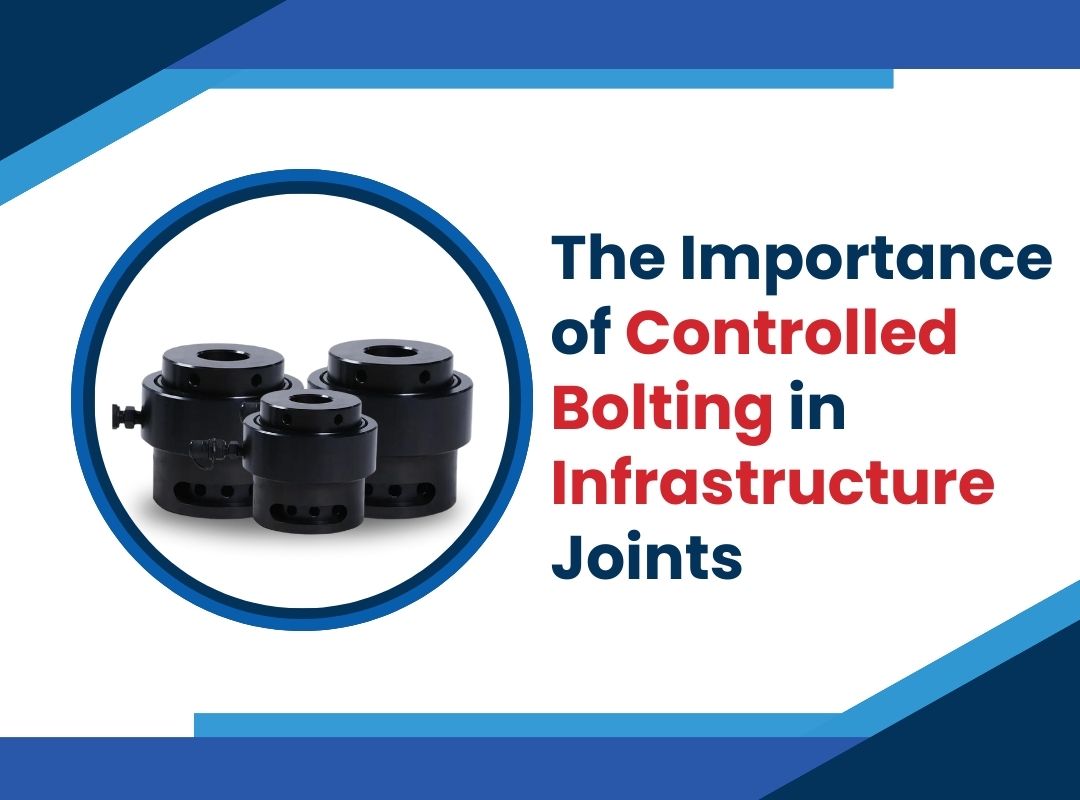Controlled bolting is a process of fastening mechanical joints that offer perfect joint integrity. If you work in high-end industries such as mining, petrochemical, food, medicine, oil industries, you would see such bolted joints everywhere.
Bolted joints are one of the most essential elements in the industry’s point of view. Thus, their reliability is of high importance. Besides, there are many advantages of using Bolt Tensioning device; not only does it ensure joint integrity and efficiency, but it also maintains safety standards with the help of torque and tension techniques.
To see more about controlled bolting in infrastructure joints, keep reading.
Now, you know what controlled bolting does? It ensures joint integrity. Once they are bolted, they cannot be reopened again; keeping that in mind, you must make specific considerations in advance so your bolting doesn’t fail.
Parameters to Be Considered For Controlled Bolting
Lubrication
Lubrication is very crucial in achieving accurate bolt load measurements while using torquing tools. For this reason, bolts are pre-coated with a lubricating coat that suits the joints and the surroundings as well. Based on the load, you can adjust the lubrication.
Usually, the bolt manufacturers mention the load value it’s going to apply during torque adjustment so you can presume your requirement of lubrication. In some cases, the pre-lubrication may deteriorate during installation or storage, so always keep the bolts well lubricated beforehand, even if they are pre-lubricated.
Fastener Tightening
As you know, these controlled hydraulic bolt are permanent. Once fixed, you cannot re-fix them. Thus, the nuts and bolts are tightened stronger than any other type of bolt. The bolt assemblies consist of one bolt, two washers, and one nut. All of these specifications are pre-loaded. All you have to do is tighten it.
Always make sure that the pre-loaded load value is more than the actual load that is to be applied while bolting. This is important for getting accurate bolt load calculations.
Quality & Grade
For infrastructural purposes, the bolts are used in the grade- Class 8.8 or 10.9, etc. For heavy machinery such as marine ships, manufacturing plants, etc., HSFG bolts are used. HSFG (High Strength Friction Grip) creates predefined tension in the bolt shank that helps the element move during frictional resistance. Thus, depending upon the type of element you’re bolting, you must consider the bolt grade.
Why Is Controlled Bolting Critical?
In any infrastructural project, safety is paramount. Thus, when your bolt load is accurate, you can achieve maximum protection from the bolts and nuts.
Precise joint integrity is promised in controlled bolting.
With controlled bolting, you get minimum frictional vibrations from the machine on which these bolts are applied.
Different types of torque wrenches can be used in infrastructure companies, such as battery torque wrenches and Hydraulic Torque Wrenches that offer real power and weight ratios.
Final Words
To conclude, I would say controlled bolting is vital in the infrastructural industry. Still, boltings can be perfect only when choosing the right hydraulic bolting tools and considering all the essential parameters about strength, bolt load, etc., in order to get successful results.


